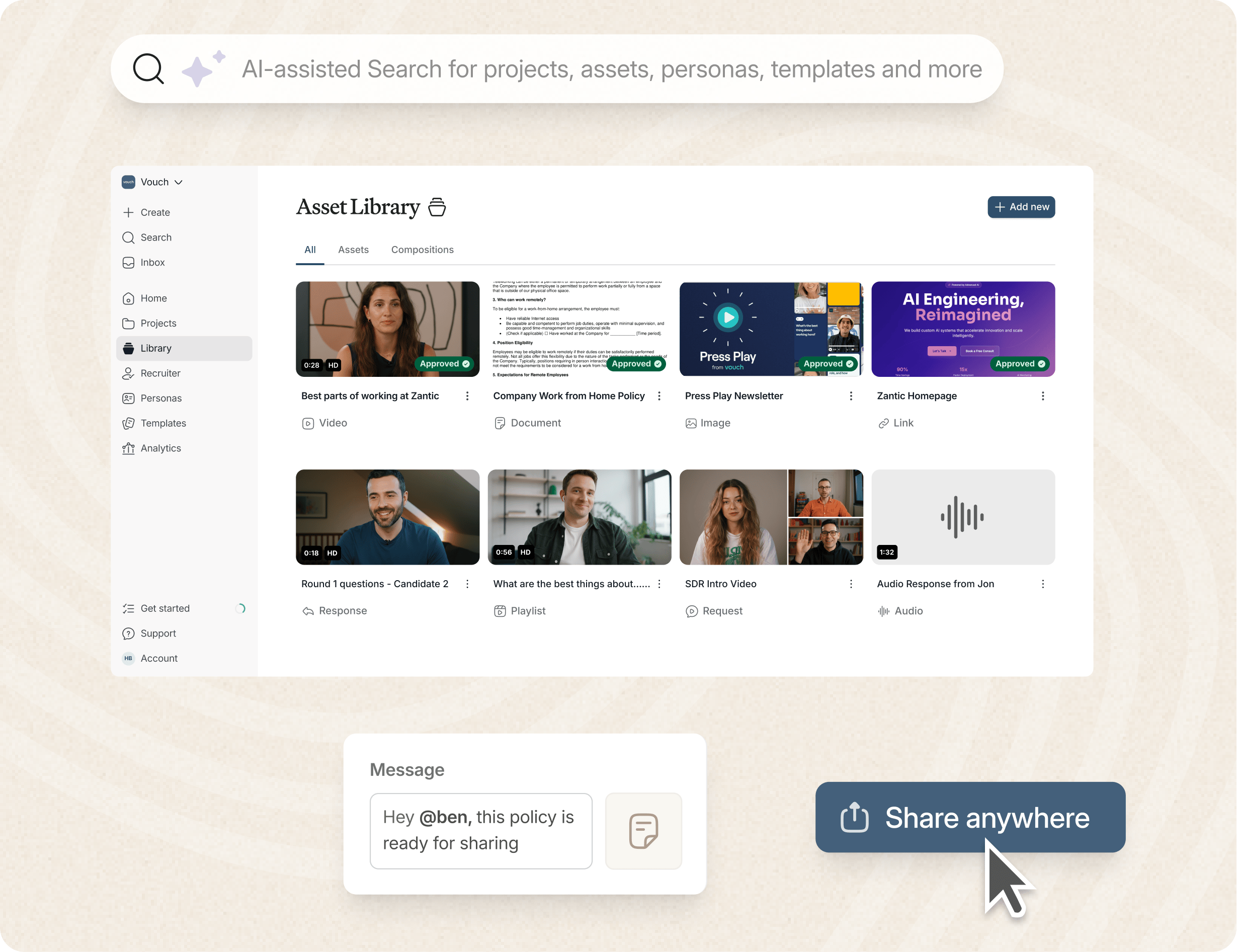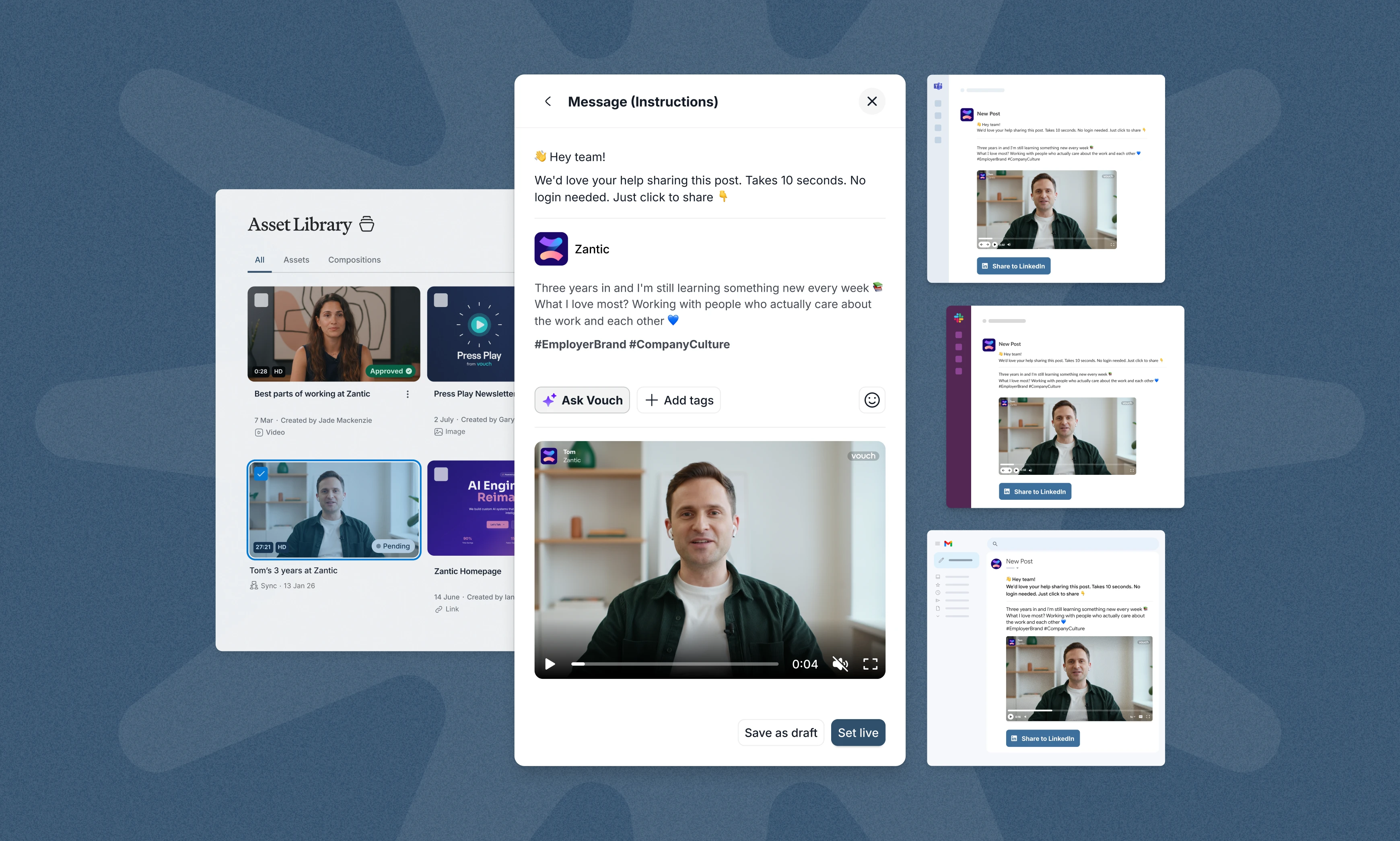Suppose you're looking to hire a Machine Learning Engineer for your software development or project.
In that case, it's crucial to have a clear understanding of the role's requirements and the ideal cultural fit for your business.
This includes identifying the essential skills and optional skills that candidates should possess, like whether the new employee needs leadership or management abilities or needs to work as part of a larger team.
So let's get started.
What Does A Machine Learning Engineer Do?
If you're looking to hire a Machine Learning Engineer, you likely know what they do, but let's cover it really quickly as the role can be quite varied, intercepting data science and software engineering.
A machine learning engineer is responsible for designing, implementing, and maintaining machine learning (ML) applications, integrations, and systems. In 2026 Machine Learning (ML) Engineers play a pivotal role in driving innovation, with responsibilities evolving to meet advancements in technology and AI integration. They design and deploy advanced models, ensuring scalability and performance, while integrating AI with emerging technologies like IoT and edge computing for real-time decision-making. MLOps practices will become central, enabling continuous integration, deployment, and monitoring of ML systems to detect issues like model drift.
Here are some essential tasks a machine learning engineer typically performs:
1) Data Collection and Preprocessing: Gathering and cleaning datasets to ensure they are suitable for training machine learning models.
2) Feature Engineering: Selecting or creating the most relevant features (variables) from the data to use in the model.
3) Model Selection and Training: Choosing the appropriate machine learning model(s) for the task and training them using the prepared data.
4) Model Evaluation: Assessing the model's performance using various metrics and fine-tuning it as necessary.
5) Deployment: Integrating the trained model into a larger application or system, often involving collaboration with software engineers.
6) Monitoring and Maintenance: Ensuring that the deployed model continues to perform well over time, making updates or improvements as needed.
7) Research and Development: Staying up-to-date with the latest developments in machine learning and incorporating new techniques or algorithms into their work.
Overall, a machine learning engineer plays a crucial role in the development and deployment of machine learning applications, working at the intersection of data science, software engineering, and domain expertise.
"Machine learning engineers are the architects of the AI revolution, building the models and algorithms that power intelligent systems and enable machines to learn from data." - Andrew Ng, Co-founder of Coursera and deeplearning.ai.
The AI-enabled workspace for talent teams.
- Unified workspace for talent teams
- Accelerate hiring with AI tools
- Auto-generate polished hiring and employer brand content
- Easily repurpose assets across all channel

Why Do You Need To Offer An Attractive Compensation Package?
Offering competitive compensation is essential if you want to attract top talent in the machine learning field - simply due to the large demand for top talent in the industry. Looking at research from websites like Glassdoor, the average base salary for machine learning engineers ranges from USD $121,000 to $193,000 per year. But it's not just about the salary; you need to become an employer of choice too.
To ensure competitive compensation for machine learning engineers and all talent really in 2026, consider including benefits such as hybrid work, medical insurance, gym memberships, meals, and performance-based bonuses. These additional perks can make a significant difference in attracting and retaining top talent and go a long way to building your Employee Value Propositions (EVPs).
In the competitive landscape of machine learning engineering, providing an attractive compensation package is a crucial factor in successfully attracting and hiring the best candidates for your team.
What Machine Learning Engineer Skills And Qualifications To Look For?
When hiring machine learning engineers, it's important to look beyond the resume and consider both soft skills and hard skills. Deeply knowing these skills will help you ensure that you're attracting and hiring the right candidates for your team.
Let's start with the hard skills:
Hard Skills
Programming languages: Proficiency in programming languages is essential for implementing machine learning algorithms and developing data-driven solutions. Here are the most common languages used by machine learning engineers.
- Python: Due to its simplicity and readability, Python is the most widely used language in the machine learning community. It has a rich ecosystem of libraries and frameworks, such as TensorFlow, PyTorch, and scikit-learn, that are essential for machine learning development.
- R: R is another popular language for data analysis and machine learning, particularly in the academic and research fields. R has a wide range of packages for statistical computing and machine learning, making it a good choice for more data-driven research.
- Java: Java is often used in large-scale machine learning projects, especially for building scalable and high-performance applications. Libraries like Weka and Deeplearning4j provide powerful tools for machine learning in Java.
- C++: While less commonly used than Python or R, C++ is still important for machine learning engineers working on performance-critical tasks or applications. Libraries like TensorFlow and Dlib offer C++ APIs for machine learning.
- Julia: Julia is a newer language that has been gaining popularity in the machine-learning community for its high performance and ease of use. It is particularly well-suited for numerical and scientific computing tasks.
Deep knowledge of machine learning algorithms: Machine learning engineers should have a solid understanding of different algorithms and concepts used in the field. This can vary drastically on the project at hand, but you should be able to identify the top candidates based on their CV.
Mathematics and statistics skills: Depending on your needs, strong mathematical and statistical skills are necessary for conducting data analysis, modeling, and interpretation.
Familiarity with big data and cloud computing: With the exponential volume and complexity of data, knowledge of big data and cloud computing platforms can be vital for machine learning engineers.
Soft Skills
Critical thinking: Machine learning engineers should possess strong critical thinking skills to analyze and solve complex problems effectively.
Problem-solving: The ability to identify issues and develop innovative solutions is crucial in the field of machine learning.
Communication: Machine learning engineers must have excellent communication skills to effectively convey their ideas and collaborate with team members.
Collaboration: Given the collaborative nature of many machine learning projects, the ability to work well with others and contribute to a team effort is essential.
Adaptability: Machine learning is a rapidly evolving field, so engineers should be adaptable and open to learning new technologies and techniques.
Time management: Given the complexity of machine learning projects, strong time management skills are necessary to meet deadlines and deliver high-quality results.
Attention to detail: Machine learning engineers must be meticulous and pay close attention to detail to ensure accurate data analysis and model development.
Creativity: Thinking creatively and exploring innovative approaches is crucial for developing cutting-edge machine learning algorithms and solutions.
By considering both soft skills and hard skills when hiring machine learning engineers, you can ensure that you're selecting candidates who have the necessary expertise and attributes to excel in the field.
"Machine learning engineers are the bridge between data scientists and software engineers, turning data into actionable insights and scalable solutions." - Cassie Kozyrkov, Chief Decision Scientist at Google.
How Do You Attract The Best Machine Learning Engineers?
When it comes to attracting skilled machine learning engineers, your Employer Brand is essential as talented job seekers are increasingly looking for companies that align with their values and aspirations over a larger paycheck.
In fact, according to one LinkedIn study, 88% of job seekers consider a company's employer brand when applying for a job. CareerArc reports that 69% of candidates would reject a job offer from a company with a bad employer brand. When you combine these two stats, you can see the importance of your employer brand.
If you have yet to work on your employer brand or would like to take it to the next level, be sure to check out Vouch, which is loved by companies like Canva, Nike, Cisco, HubSpot, Amazon, and more.
Needless to say, your company's reputation is the key to attracting top talent in 2026, and that applies to machine learning engineers and all other roles that require talented, loyal employees.
What Networking Platforms Are Machine Learning Engineers On?
Beyond the obvious job boards like Seek and Glassdoor, where only active candidates are available, you might also want to consider passive candidates and top talent who are looking for a change and are in deeper networks.
Online communities where machine learning engineers hang out include Stack Overflow, Reddit, Dev Community, and Kaggle, amongst other communities that are built around programming languages like Python for example.
Social media can also be highly valuable, especially LinkedIn and Twitter, or X, where there are often many influencers and their followers. You can connect with potential candidates and tap into the talent pool of machine learning engineers.
By leveraging these channels that other companies might be missing, you can increase your chances of finding and connecting with skilled machine learning engineers who could be a perfect fit for your company.
How Do You Assess Machine Learning Engineers?
Assessing machine learning engineers is crucial, and if you have other machine learning engineers already working in your company, it would be worth considering adding them to the interview process. Here are some strategies to assess machine learning engineers:
1) Technical Pre-Employment Tests
Technical screenings can be a significant first step when employing any kind of engineer, as they quickly separate the experienced engineers from those who love a challenge. Tools like Vouch can make this process easy with pre-defined technical questions that you can set. Video-based pre-employment tests also help you understand a candidate's critical thinking, attention to detail, and soft skills.
2) Assess Wider Practical Knowledge
While theoretical machine learning knowledge and experience are essential, it's important to assess a candidate's practical knowledge in programming, data science, and business. One of the best ways to access this is to request examples of their previous projects and dive deep into their experience and how they've solved real problems.
3) Evaluate Collaboration and Communication Skills
Machine learning engineers often work in cross-functional teams, and they usually need to collaborate with other departments. Assessing a candidate's communication and collaboration skills to ensure they can effectively work with others and contribute to the team's success.
4) Consider Using A Talent Assessment Platform
To simplify and streamline the assessment process, consider using talent assessment platforms like Vouch. Video platforms like Vouch offer a range of pre-built assessments and customizable tests that can provide remarkable insights into a candidate's abilities.
"Machine learning is not magic; it's just math. And the people who understand that math, the machine learning engineers, are the magicians."—Kevin Scott, Microsoft's CTO.
Common Mistakes to Avoid When Hiring Machine Learning Engineers?
When it comes to hiring machine learning engineers, it's good to be aware of the common mistakes that can hinder your hiring processor results. By understanding the pitfalls, you can proactively avoid these issues.
Mistake 1: Misunderstanding the Role
One of the biggest mistakes when hiring a machine learning engineer, especially if it's a new position in your company, is not fully understanding the role they will play in your teams and company. Take the time to define the job requirements clearly, including any leadership and management needs.
Mistake 2: Ignoring Real-World Experience
Real-world experience is crucial when hiring machine learning engineers. Be sure not to rely solely on academic qualifications or theoretical knowledge. Look for candidates who have practical experience working on machine learning projects, too, and skills in real-world scenarios. Evaluate their portfolio, previous projects, and any contributions they've made to the machine learning community.
Mistake 3: Not Offering Competitive Compensation
The best machine learning engineers are in high demand, and not offering competitive compensation can result in losing top talent to competitors and other companies. Research the current market rates for machine learning engineers, offer a salary and benefits, and consider additional perks, such as performance-based bonuses, medical insurance, and other incentives, that make your EVP offer more attractive.
Mistake 4: Having A Slow and Inefficient Hiring Process
A slow and inefficient hiring process can drive away qualified candidates. Streamline your hiring process by establishing easy communication channels and ensuring prompt feedback to candidates. Technology like Vouch can help, too. Here are nine ways to streamline your hiring journey in 2026.
Avoiding these common hiring mistakes will help you attract and onboard the best machine learning engineers available.
Understanding The Growing Importance of Machine Learning
Machine learning is revolutionizing industries everywhere; with the constant growth of data and the need to extract meaningful insights, businesses are recognizing the value of incorporating machine learning engineers.
The job market for machine learning engineers is booming, and the demand for machine learning professionals who have the knowledge to develop and implement machine learning systems continues to rise.
FAQs
What should I consider for a machine learning engineer role?
When mapping out the requirements for a machine learning engineer role, you should consider essential skills like hard skills, plus soft skills like leadership or management abilities, and be sure to find the right company cultural match.
How can I attract top machine learning talent?
To attract top machine learning talent, it's important to offer competitive compensation, including a competitive salary, benefits such as insurances, gym memberships, and performance-based bonuses.
Where can I find skilled machine learning engineers?
Skilled machine learning engineers can be found on platforms like LinkedIn, job boards, and websites. You can also explore online communities and forums such as Stack Overflow, Dev Community, and Kaggle and participate in online machine-learning competitions to identify talented candidates.
How can I assess machine learning engineers effectively?
Assessing machine learning engineers can be done through a combination of screening assessments and interviews. Consider using pre-employment tests that evaluate problem-solving, critical thinking, attention to detail, and machine learning skills. You can also create custom interview questions that focus on important skills for your specific role and use talent assessment video platforms like Vouch.
What Skills Are Essential for an Engineer Job Focused on Deep Learning and Machine Learning?
Essential skills for an engineer job in deep learning and machine learning include experience with machine learning algorithms, deep learning frameworks, and cloud-native environments. Additional key skills include analytical skills, software design, and experience in developing scalable products. Certifications in machine learning and relevant coursework in AI are also highly valued.
How Important Is Experience with Cloud Infrastructure for Machine Learning Engineers?
Experience with cloud infrastructure is vital for machine learning engineers, particularly when working on cloud enterprise solutions. Understanding cloud environments and cloud-native architectures allows engineers to build and deploy scalable machine learning models efficiently, ensuring that software products can meet the demands of mission-driven US companies and other clients.
What Are Common Skills Required for Freelance Machine Learning Engineers?
Freelance machine learning engineers need a strong understanding of machine learning concepts, deep learning techniques, and cloud infrastructure. They should also possess collaboration skills for working with diverse teams and experience in building models, solving complex analytical challenges, and delivering software systems. Certifications in machine learning and relevant project experience are often required by clients.
How Does Deep Learning Expertise Impact the Development of Autonomous Driving Technologies?
Deep learning expertise is critical in developing autonomous driving technologies, as it enables the creation of sophisticated models that can process vast amounts of data in real-time. Engineers with deep expertise in this domain contribute to advancing the boundaries of science in autonomous systems, helping to solve complex health and safety challenges in the automotive industry.
What Role Do Analytical Skills Play in Machine Learning and AI-Focused Roles?
Analytical skills are essential in machine learning and AI-focused roles as they enable engineers to understand and interpret complex data, design effective algorithms, and solve intricate problems. These skills are crucial for developing machine learning models, performing data analysis, and ensuring that AI solutions are both accurate and efficient.
How Can Certifications in Machine Learning Benefit Career Growth in the Tech Industry?
Certifications in machine learning can significantly enhance career growth by demonstrating a candidate's expertise and commitment to the field. They provide validation of skills in machine learning, deep learning, and artificial intelligence, making candidates more competitive for roles in high-demand fields such as cloud AI, software development, and autonomous technologies.Conclusion
Conclusion
As the demand for machine learning engineers continues to grow, hiring the right talent is crucial to boosting your company's capabilities in artificial intelligence and staying ahead in a new data-driven world. To ensure successful hiring in 2026, it is important to approach the process with careful planning and a clear understanding of the job requirements.
By implementing these strategies, you can hire the best machine learning engineers to help you build your workplace culture and long-term company success.
Like to try Vouch?
Loved by companies like Canva, Nike, Cisco, HubSpot, Amazon, and more, tools like Vouch make leveraging video in your business remarkably easy.
Be sure to book a Vouch demo today and chat with a video content expert.
You might also like

Elevate Your Brand Today With Vouch
Discover how Vouch can accelerate talent acquisition while helping you stay on-brand.






